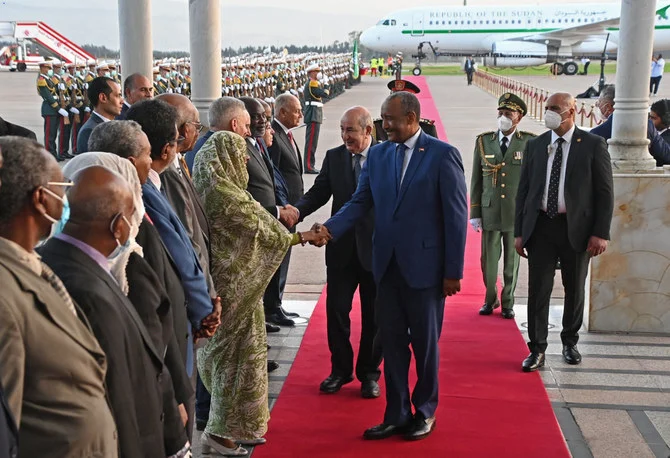
- ARAB NEWS
- 18 Jul 2025

Arab League leaders met in Algiers this week with a lot having occurred since their last summit three years ago.
With winter approaching in the northern hemisphere, COVID-19 infection rates are likely to increase. Armed conflicts continue in Yemen, Syria, Ethiopia, Afghanistan, Mali, and Somalia, with civil unrest in other nations.
The invasion of Ukraine by Russia has had major global implications, greatly reducing food and fuel supplies, pushing up prices across Europe and other parts of the world, and increasing pressure on already struggling nations such as Egypt who source their wheat from the Ukrainian region.
Added to this are the effects of climate change, which are having a greater impact sooner than scientists predicted, with more severe flash floods, droughts and rising temperatures, and an increase in air pollution caused by ground-level ozone. This is affecting, and will continue to affect, even the richest of countries —but to those already suffering shortages of food, water and other essential resources, it will be devastating. With nuclear threats also in people’s minds, there was a lot to discuss at the summit.
It is indeed time, as League general secretary Ahmed Aboul Gheit said, to end conflict in the MENA region. The strengths of the League should be combined to aid one another during this tumultuous time. There is an essential need to broker peace, to stop fighting one another and focus on how we can best weave our way through these next few years, each lending the skills of our nation. After all, what is the point of such a league if we do not use it to strengthen our nations, our economies and our global position?
All in all, it seems that much of the summit was given over to discussing ways to developing peace.
Bashayer Al-Majed
The issues mentioned above have led to 141 million people in the Arab world suffering from food insecurity. This is only likely to exacerbate unrest and conflict, which in itself then leads to tougher economic hardship. The shortages of wheat and other cereals, combined with drought and rising temperatures, really drive home how essential it is to deal with climate change now, as best we can.
Most Arab nations are trying to manoeuver around the Russia-Ukraine war, with Saudi Arabia having offered to act as a neutral party for discussions. In the disagreements with the US over increasing oil production, the OPEC+ producers’ alliance has decided to adhere to previous plans to reduce output.
In light of global warming and the need to increase GDP from alternative sources, this should be seen as a positive. The more we invest in projects that diversify the economy the more sustainable those economies will become, an example being the eco-tourism that has started to develop in Saudi Arabia and the UAE. Not only is this economically more sustainable, but these projects are investing in developing state-of-the-art green energy, protecting and studying coral reefs and other delicate ecologies, and increasing equal opportunities for women to study and take vital engineering, architecture, entrepreneurial and leadership roles.
At the summit, Kuwait’s Crown Prince Sheikh Mishal Al-Ahmad Al-Jaber Al-Sabah called for peace and sought ways to reconcile the League’s nations that are in conflict. Kuwait also addressed terrorism and extremism, which not only, of course, bring instability and fear, but reduce confidence among would-be investors in the region. Kuwait strongly denounced the attack on Yemen’s oil port by the Houthi militia, and called on support from the international community for a peaceful, diplomatic resolution.
President Abdel Fattah El-Sisi of Egypt agreed that terrorists and armed militia in the MENA region weakened the Arab world as a whole, and said that eliminating their presence, while simultaneously building better municipal systems and legislatures to respect human rights and equal citizenship, would build a stronger conjoined Arab nation as a whole.
All in all, it seems that much of the summit was given over to discussing ways to developing peace. Little more can be achieved before the vital basic needs of security and stable food supply are established. Eliminating inter-Arab fighting gives better security to all the nations of the League, and by presenting a unified whole, with shared needs, delivers a stronger face to the international community, where our concerns are more likely to be listened to and our needs met.